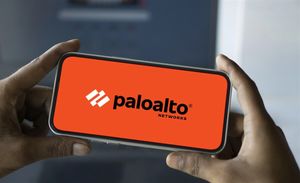Financing the Care of Loved Ones With a Disability

SPONSORED CONTENT -- (StatePoint) According to the U.S. Census Bureau, over one in four Americans are living with a disability and about one-half of these individuals are living with a severe disability.
Whether present at birth or caused by a life-altering accident or illness, severe disabilities almost always create a significant financial burden due to curtailed earning power and ongoing expenses. That’s where a specialized trust or savings account may help both the individual with special needs, and their families.
To honor Disability Pride Month this July, Wells Fargo is sharing information about Special Needs Trusts (SNTs) and Achieving a Better Life Experience (ABLE) accounts in order to help individuals and families understand their options.
What are special needs trusts? SNTs are irrevocable trusts drafted by an attorney. They’re used to set aside money or property to cover the needs of individuals living with physical, mental or developmental disabilities who may not have the ability or legal capacity to manage their assets and keep detailed records.
How are SNTs funded? The two types of SNTs depend on the source of funding:
• First-party SNTs are funded with money the beneficiary owns, or is awarded as compensation for medical malpractice, personal injury or another type of legal settlement. Typically, they’re created by the beneficiary’s parents, grandparent, legal guardian, or a court, and are for beneficiaries under 65. When the trust terminates, Medicaid is entitled to reimbursement of any funds expended on the beneficiary.
• Third-party SNTs can be established at any time by someone wishing to provide for a minor or adult with special needs, including as part of an estate plan. Unlike first-party trusts, they may be created by anyone, and there is no age restriction on the beneficiary. The terms may be modified, and there is no reimbursement requirement to government programs. While advantageous, their complexity often requires professional assistance.
What are SNTs’ benefits? An SNT can help you or a loved one:
1. Meet current cash flow needs and plan for the future.
2. Preserve eligibility for governmental benefits. People living with disabilities may become ineligible for state and federal benefits if their income and resources exceed certain thresholds. Under federal law and regulations, an SNT helps ensure a beneficiary remains eligible for these programs.
3. Enhance quality of life by providing financial support for activities and services inadequately covered by public benefits programs. In addition to medical, dental and eye care expenses, appropriate purchases may include an accessible vehicle, medical equipment, computer, gym membership, therapy animals, music lessons, supplemental caregiving services, and even entertainment and travel. The goal is to increase the beneficiary’s ability to enjoy life and participate in their community.
Is an SNT a good fit for my family? Do you have an adult child living with a disability who will need care beyond your lifetime? Are you receiving a personal injury settlement? Do you need to protect your public benefits eligibility? Are you considering making provisions in your estate plan for a loved one? If so, then an SNT may be a good fit. To learn more about establishing a special needs trust, visit wellsfargo.com/the-private-bank/solutions/specialized/special-needs-trust-services/.
What are ABLE accounts? ABLE accounts are a type of tax-advantaged savings accounts for individuals with disabilities and their families opened and maintained by the beneficiary, a parent, guardian, or designated agent.
How do ABLE accounts compare to SNTs? Relative to an SNT, the cost of establishing and maintaining an ABLE account is relatively small. And unlike SNTs, funds can be used for housing and food without an in-kind support and maintenance reduction to Social Security Income. However, ABLE accounts do have a Medicaid payback requirement. Due to their complementary benefits, it’s both permissible and, in some cases, desirable to have both an ABLE account and SNT established. This combination can provide flexibility for the family and the greatest possible benefit to the disabled individual.
Caring for someone living with a disability can be challenging, particularly when it comes to managing assets. Fortunately, financial tools exist to help those living with disabilities, and their families, thrive.
*****
Photo Credit: (c) monkeybusinessimages / iStock via Getty Images Plus
More News
View MoreRecent Quotes
View More
Quotes delayed at least 20 minutes.
By accessing this page, you agree to the Privacy Policy and Terms Of Service.




